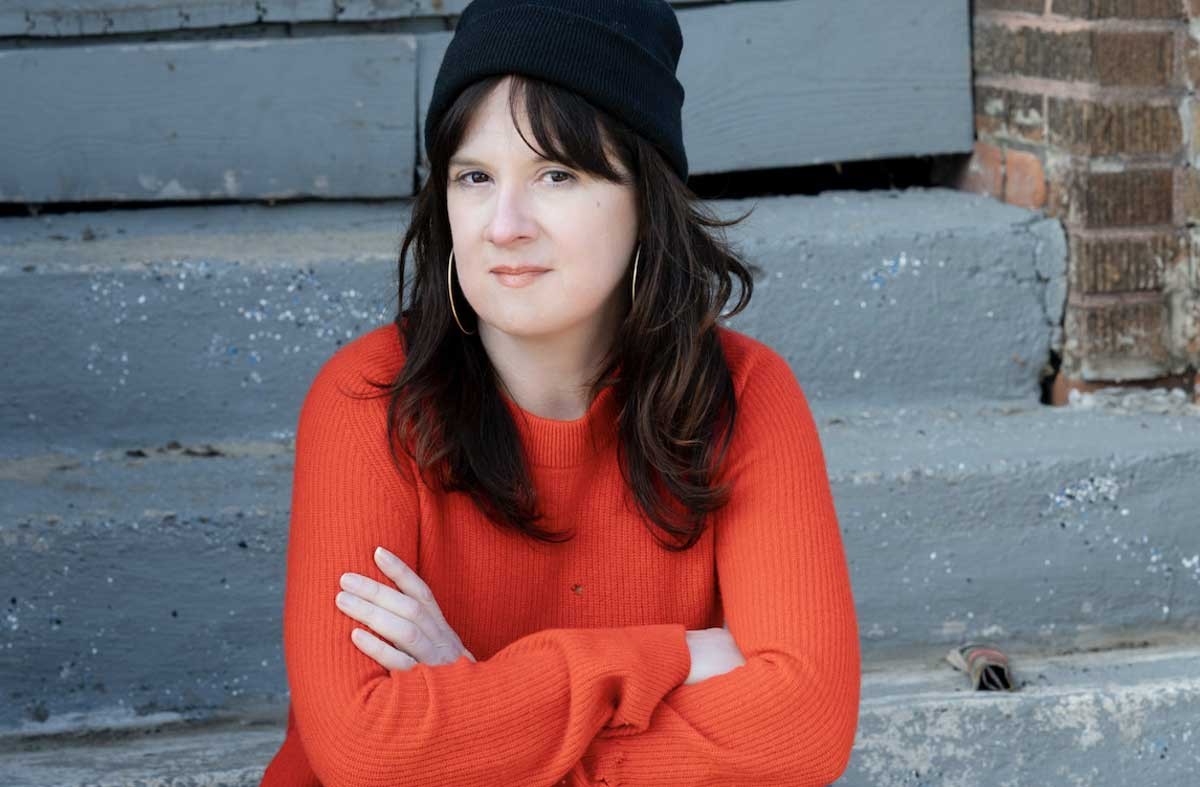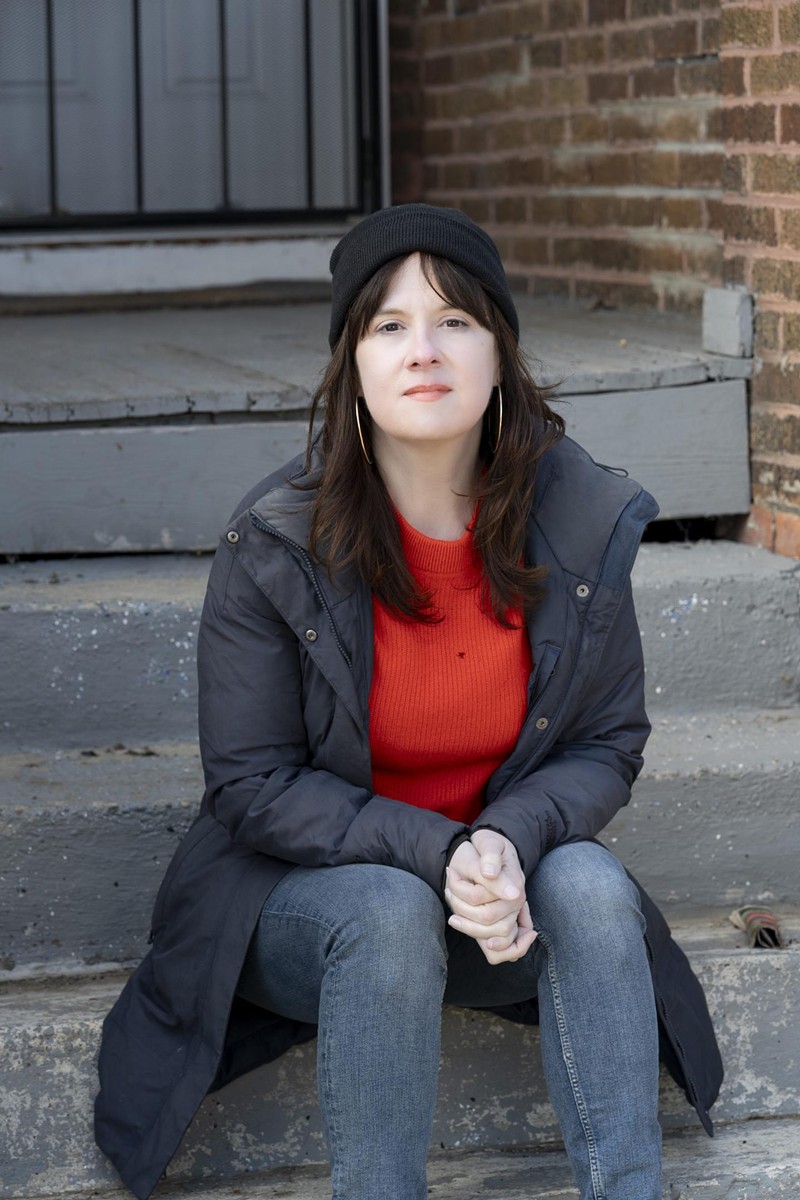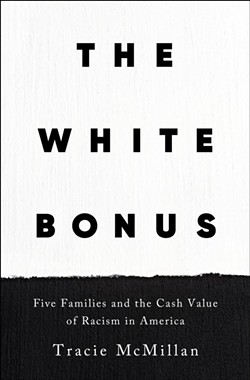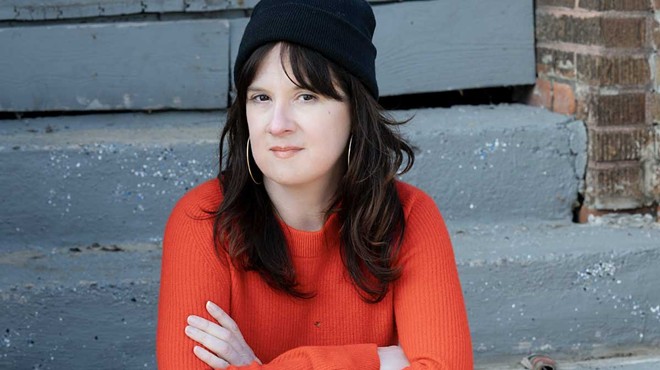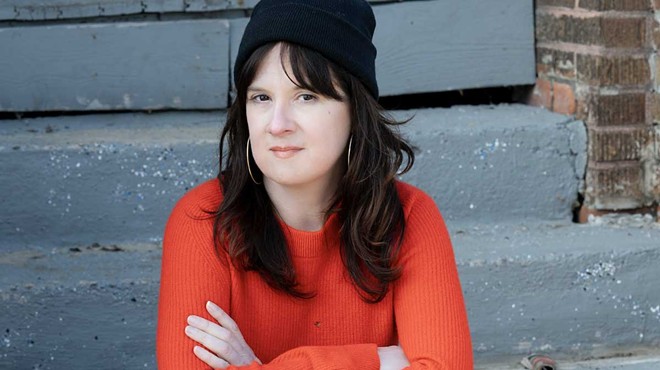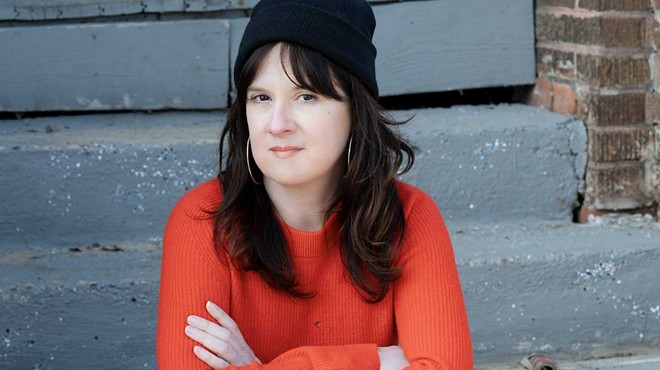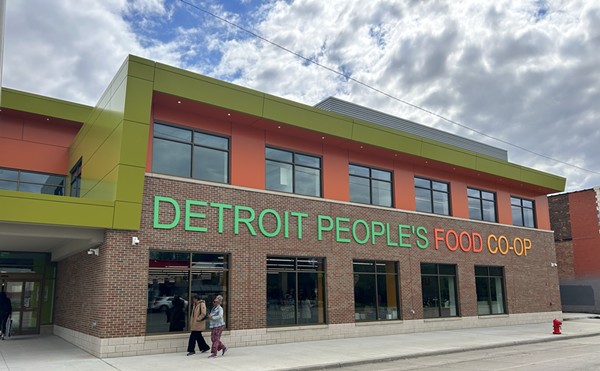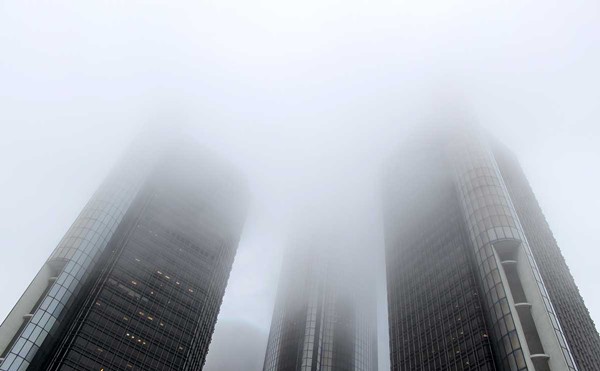Racism is often analyzed as a system of oppression that disadvantages people of color across various areas of life. Award-winning investigative reporter Tracie McMillan offers a fresh perspective, instead examining the benefits that white individuals, including herself, receive as a result of racism.
In the author’s first book, The American Way of Eating, McMillan focused heavily on white resentment and the food industry. Now, in The White Bonus: Five Families and the Cash Value of Racism in America, the author merges journalism with memoir to measure the cash benefit – and the cost – of racism for white Americans.
The book, released on April 23, begins with McMillan’s own family and personal history of abuse, illness, and poverty, much of which took place in Michigan. Later, the author interlaces her story with profiles of four other middle-class white subjects, spanning generations and different areas of the country. The final chapter of the book discusses gentrification in Detroit specifically, highlighting McMillan’s own experience of purchasing an affordable home in the city, courtesy of the “bonus of racism” for white people.
The author describes “the white bonus” as an estimate of the money a white person gets or saves because of white supremacy, through “family” and “social” bonuses. For McMillan herself, she estimates that value to be $371,934. Yet, she emphasizes throughout the book that these privileges are not without cost, impacting not only Black Americans but white individuals too.
McMillan’s nationwide tour to promote The White Bonus will include local events in Detroit, Ann Arbor, Oak Park, and Flint from May 7-11.
Metro Times spoke with McMillan, who splits her time between Detroit and Brooklyn, New York, about the book’s concept and connection to Michigan.
The conversation was lightly edited for length and clarity.
How did the idea for the concept of “the white bonus” evolve from your initial inspiration to write this book to what it is now?
“I knew that I wanted to figure out how to write about whiteness and class in a way that served racial justice. The idea for this book really started in my head in 2016, when I saw both Trump’s rise and there was this book, Hillbilly Elegy that people were really excited about and I just felt like Hillbilly Elegy ain’t it, like this is not actually helpful. That book, in my opinion, largely blamed poor people for being poor. I don’t like when that happens to people who aren’t white. I don’t like when that happens to people who are white. For me, as a journalist, I care a lot about poverty, so I wanted to figure out some way to talk about that. Being a Midwestern, sort of lower-middle-class person in New York media, and at the time food circles, most of the people around me had a lot more financial backing than I did. What that meant was that in New York, it often felt like a conversation about white privilege. You would say, ‘Oh, well, you know, white kids, their parents pay for their university.’ And it’s like, ‘Well, that doesn’t really apply to me.’ That doesn’t apply to a lot of white people, but it doesn’t mean that race isn’t working somewhere. So for me, I wanted to figure out how to talk about white advantage for people who aren’t rich, because usually we just sort of mix the two in. The idea specifically for measuring it, that took a couple of years of writing a lot of stuff that I didn’t keep, but trying to figure out what I was thinking about. White privilege as a concept is so slippery, and it’s really easy to just start arguing about, does it exist, which kind of privilege, and I just felt like if you could put a measure on it, we could have a more productive conversation. At least then the conversation is not about does it exist, the conversation is about how big is it. You’ve already assumed that it exists, and that just felt more honest, to go about it that way.”
How would you say that writing and reporting The White Bonus prompted you to confront your race in a new way, uniquely to your first book, The American Way of Eating?
“When I worked on The American Way of Eating, I had decided to write that book in a way where I would take my race and gender really seriously. That felt like an honest way to tell that story. I had gone and worked undercover at a few jobs in the food system; two of those jobs, I was the only white person in either workplace and the only white woman in either workplace … In both of those places, I got treated differently because of my race. Usually, I was treated better. Gender was a mixed bag. In some instances, I was treated with more kindness. Then I write about how at Applebee’s I get sexually assaulted, a co-worker drugs my drink and I get assaulted. That’s also about gender. So for me, it was just really important to reflect those things in my writing and it was the first time that I had sort of time and headspace to really think about how being white and how being a woman was shaping my life. One of the great privileges of being able to write professionally is in some ways I get paid to think about stuff so I can explain it better. So, there’s no way I could have written The White Bonus if I hadn’t spent the first book trying to figure out and get a handle on how my race was shaping my life.”
You’re a professional journalist, but this book is a mix of journalism and memoir. What was it like for you to merge research with such personal stories?
“I wanted to bring in memoir because I couldn’t tell an honest story without it and that’s true on a number of levels. I think it is true in a really practical way because the book is about my financial opportunities and involves tracking what kind of support I’ve gotten from my family. I went through a period during college and for a little while after where I did not talk to my father and stepmother. I did not get any money from them. The reason I did not talk to them is because my experience was that my father was physically abusive, and then everybody was sort of pretending like it wasn’t happening. If I didn’t write about the abuse, I couldn’t explain why I was poor.”
“There’s also a deeper reason that gets pulled out later on in the book that, in the [2010s]… all these sort of big public stories about racism, and then the appearance of a forum where you don’t have to get past a gatekeeper to say your piece. So, I’m starting to read more and more and I’m realizing, Black people’s understanding of racism is very different from the one that I was raised with. I’ve seen all this stuff happen and when I’m listening to and reading Black writers talk about what it’s like to experience racism, I’m constantly hearing an echo of the things that I endured, sort of, in an abusive family. It’s not the same thing, it’s a completely different scale and scope and heft, but a lot of racial subjugation are the same things that people use to subjugate kids or partners or people that they’re abusing them in some way. For me, I just felt like that was such a powerful insight about my country, that the thing that gave me empathy for people of color talking about what it was like to live here was abuse. So I felt like I needed to write about it that way as well.”
You talk in the book about living in rural Michigan growing up and then later living in Detroit. How would you say that living in Michigan specifically and writing this book about that helped expand your understanding of class?
“Being from the rural Midwest, I’ve been working since I was 14, that is normal where I grew up. It is not normal for students at NYU. I think just because of the nature of my life, and also because in New York, I’ve written for and been part of fairly elite circles and publications. When I was in college, I worked for a very wealthy family, and I had a really unique opportunity to go up and down the class ladder even in a day. I was working through AmeriCorps at a public high school in New York City, so 7 a.m., start of classes, I’m there with Dominican immigrants, Black New Yorkers, and Chinese immigrant kids, helping them learn to read and navigate high school. Then, I would walk a couple miles uptown to where NYU was and I’d be in classes with people who are the children of movie producers and doctors and have much more financial access — and by the way, very, relatively diverse. NYU had a really diverse student body but most of the kids came from money. I was a scholarship kid, so it was very different for me. Then, in the evenings, I would go work as a nanny-slash-tutor for this family that had a house in Connecticut, the kids had been to seven of the continents already and they were 11 and 14, famous people would come over for dinner, and so most Americans don't get to go up and down that much. Maybe you sort of get mobility and go up, but particularly because I chose a career as an independent writer, which I’m able to do because I have cheap housing, because I chose that career, some years I have money, some years I don’t. I just go up and down all the time, and that’s really different from how most Americans live, which I think gives me insight that's really helpful in the kind of work that I do.”
In the final chapter of the book, you talk about Detroit’s gentrification and how “the white bonus” has allowed you to buy property in the city. What would you say you learned specifically about the city of Detroit and the race and class in the city through your research for this book?
“Before I wrote the book, I had a loose understanding that ‘Oh, racism, probably, hasn’t been great for the city,’ in a general sense. But the magic of investigative reporting is that you take those big ideas and you nail them down with facts. The way that the ‘white bonus’ is working for me in Detroit isn’t so much the family bonus, the actual money given to you that you wouldn’t have if you weren’t white, but the ‘white bonus’ here is more the bonus of racism. Racism put the city in super sale, all that predatory lending, it blew up the city’s housing market. The reason that we had so much housing that was so cheap was because of that predatory lending crisis and the cascade of first bank foreclosures and then tax foreclosures. All of that can really clearly be traced back to racism, particularly racism in money. Some of the banks involved… they intentionally targeted Black borrowers and even Black homeowners and convinced them to pull equity out of their homes. That is why the housing in Detroit went on super sale. I did try calling the family that owned my house before it went into foreclosure and they did not want to talk to me about this, understandably. There’s a lot of stigma around mortgages and stuff like that, but I just think, the timing of it, the house that I own went into foreclosure just as the bank foreclosure stuff was getting going. The value of the house was like the median value of houses that went into foreclosure. I just think that it’s highly unlikely I would be able to be a homeowner, particularly as a lower-income writer, if it hadn’t been cheap, and that means I benefited from racism, even though I didn’t do anything to sort of make that happen.”
In the book, you critique mainstream journalists, including yourself, for centering white people, even though the book’s primary subjects are all white. Why did you feel that this focus was uniquely important?
“I don’t think white America ever talks about this. White America never talks about whiteness as an advantage and I think it’s really damaging to our country. I think it’s really damaging to our democracy and our economy to be dishonest about the way that government policy has given more opportunity to white people. We usually talk about racism as this thing that takes away from Black people, it denies Black people opportunities, like you don’t get given a mortgage. That’s one way to look at it. But it is also true that for a mortgage, you get given it or you don’t get given it, but the active thing is the giving. If you didn’t get a mortgage, nothing is happening. If you get a mortgage, something is happening. So, things like [Federal Housing Administration] loans, white people got mortgages so they could become property owners, but we don’t talk about it that way. We don’t talk about it as a choice of government and so it obscures what’s actually happening, which is that the racial wealth gap is largely due to policies that let white families build more wealth than Black families. It’s not only because white families worked harder, made smart decisions, though often they had to do that. It’s that the government gave them the opportunity and made the conditions for stuff to move forward and then we get to white people as voters try to say, ‘We don’t want to spend money and give handouts to people of color because we didn’t have anything,’ except that we did. When we don’t talk about white advantage, it hides it and it strengthens racism and makes it almost impossible to actually start dismantling it. One thing I think about a lot is that there’s all these stories about white people all the time, and the one story we never talk about is that government made it sort of financially beneficial to be white. We never talk about that. That’s a hidden story.”
Why do you feel that Detroiters should read your book?
“Some of the history around racism in Oakland County is just bananas to me. I grew up in Oakland County. I did not know how much of a racist reputation Oakland County had. I did not know that Ferndale was the first northern school district to be sued by the federal government for operating a segregated district. I did not know right that in 197o or ’71, the Ku Klux Klan blew up 10 school buses to try and prolong segregation there. I mean, these are my people. I had no idea about any of this. So I think, particularly for white readers in Detroit, because the previous generations are hiding that stuff from us, I think it’s important to understand. If you’re a white person in Detroit, you can understand some of why Black people might not be super trusting or excited about talking to you and that that history is there. I was raised to be like, ‘I’m colorblind,’ and I should never talk about race. That also makes it really hard for me to be friends with anyone who’s not white because they’re like, ‘What are you doing? You don’t understand reality.’ I want to be able to talk to my neighbors and have them feel like I see them as my equal. That’s important. So for me, just being a good neighbor in Detroit means having some understanding of how racism in the region has worked. The depth of the racism in Oakland County really blew my mind. I did not know that history and it was really humbling and upsetting to learn it.”
What do you feel or hope that both white and non-white readers can differently learn from reading The White Bonus?
“I think for white readers, to examine how we think about race and racism and how it impacts our lives. I think, for me, doing this project made me personally much more dedicated to doing work in my communities to try and end racism and mitigate sort of its worst effects. I belong to my tenant organization in Brooklyn, and I’m one of 48 tenants. I’m the only white tenant and the co-chair of the tenant organization and I just sort of resolved that I would put in more work. Understanding so much of how my financial stability has depended on me being white encouraged me to help my neighbors out when I can, and it’s also just on a day-to-day level. The management tends to be more receptive to me than to my other neighbors when we’re making complaints about the building, so there’s a way that I can use the sort of racism that benefits me and hears me more easily than other folks to help people. It’s important to focus on ‘the white bonus,’ but I also write about its costs, about racism’s costs. I think that’s actually one of the more powerful things about doing this measurement process is that once you measure what white people are getting, it frees you up to be honest about what racism costs all of us, including a lot of white people, and you can’t really get there if you can’t admit that it’s a bonus first. So I think for white people, it’s to start thinking about ‘Is this really worth it? Do you get enough because of racism? Do you think staying silent about racism is worth all the things that costs you?’ We don’t have public health care in this country largely because of racism. Higher education and student debt has gotten way worse because of the racism of white voters who wanted to take their taxes out of the system because they were worried about public programs going to Black and brown folks. As the college population gets less white, support for state funding for universities goes down. White Americans keep co-signing on these really punitive programs, making people prove that they deserve help because they think it’s not gonna come for us, but that’s not how it works.”
“For people who aren’t white, I don’t know that any of the broad argument of the book is surprising to anybody. Most people of color are aware that white people have gotten more help than they and their families have. My hope is that it’s like receipts, it’s sort of like, ‘Here’s a compendium, giving you really clear and specific examples of how that is happening.’ I think for both white people and people who aren’t white, if we only focus on the bonus part, which we have to be honest about if we’re not also honest about the cost, I don’t think we'll get anywhere helpful. Certainly, Black and brown people pay the deepest cost for racism, but a lot of white people need the things that racism ruins. I think that there’s sort of an opportunity to start building a country where we can all work together as equals and live up to the ideals that were told this country holds dear because we don’t, generally speaking, do a very good job of treating everyone like their equal, but if we can start being honest about how racism works, I think there’s an opportunity there to really build.”

